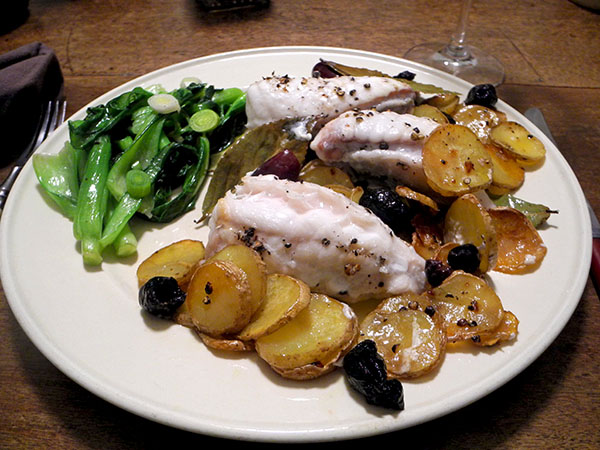
I had thought about presenting a very different monkfish dish tonight, but it was one that would have required a bit of dexterity. For that same reason, as I was feeling a bit under the weather with a bad cold, I fell back onto an old standby that’s always pleased.
Monkfish is the delicacy the French know as Lotte, the Italians as Coda di rospo, the Spanish as Cola de Rape, and the Germans as Seeteufel. The English call it Anglerfish, which in fact, I would say, is pretty much what it is.
Probably our happiest experience with this great fish was in northern Spain, on a visit over a decade ago.
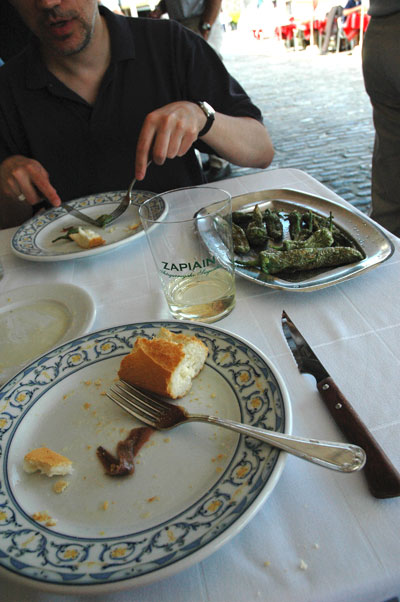
The species has only recently developed a following on this side of the Atlantic, due, I think, mostly on account of its repellent visage.
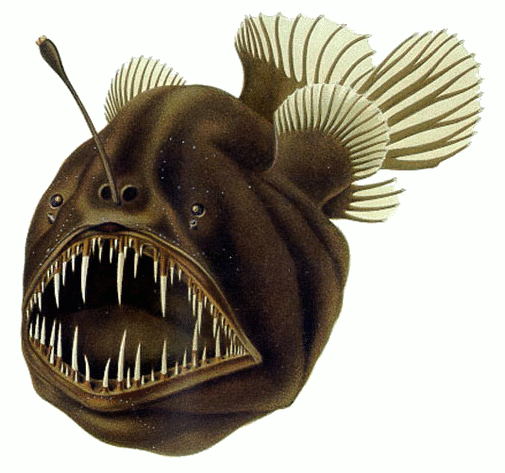
There was nothing frightening however about the potatoes or the vegetables.
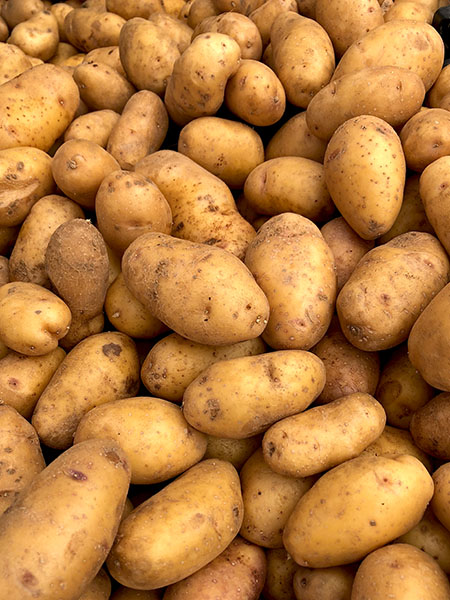
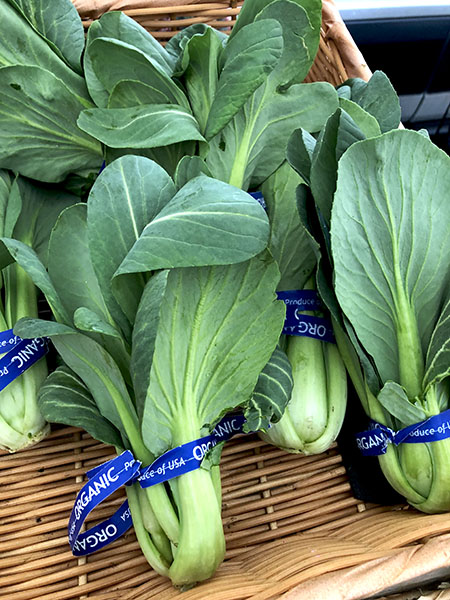
- two monkfish tails (a total of 22 ounces) from Pura Vida Seafood, rinsed, and cut into four pieces, seasoned with sea salt and freshly-ground black pepper, roasted at 400º for 12 minutes with three fourths of a cup of a mixture of Gaeta and black oil-cured olives from Buon Italia, pits removed, placed on top of a bed consisting of a full pound of very thinly-sliced unpeeled Nicola potatoes from Mountain Sweet Berry Farm that had been scrubbed, seasoned with sea salt and freshly-ground black pepper and roasted beforehand for about 40 minutes in a very generous amount of olive oil (1/4 of a cup) with 13 dry Italian bay leaves from Buon Italia, and a pinch or so of crushed dried orange/gold habanada pepper inside a large enameled cast iron pan (the potatoes having been removed when they had softened and their edges had begun to crisp)
- one washed and trimmed bunch of a sweet baby bok choy from Tamarack Hollow Farm in the Union Square Greenmarket, added gradually to a tablespoon or more of warmed Portuguese olive oil inside a heavy vintage large high-sided tin-lined copper pot, the choy stirred until tender while introducing some of the water which they had shed that was left in the bowl after they had been washed, seasoned with sea salt and freshly-ground black pepper, arranged on the plates, scattered with one washed, dried, cut green garlic from John D. Madura Farm, finished on the plates drizzled with more olive oil
- the wine was a Portuguese (Alentejo) white, Esporão Reserva White 2016
- the music was Jean Philippe Rameau’s 1748 Paris one-act acte de ballet, ‘Pygmalion’, performed by James Richman and the Concert Royal Orchestra & Chorus
[the anglerfish image is from Wikipedia]